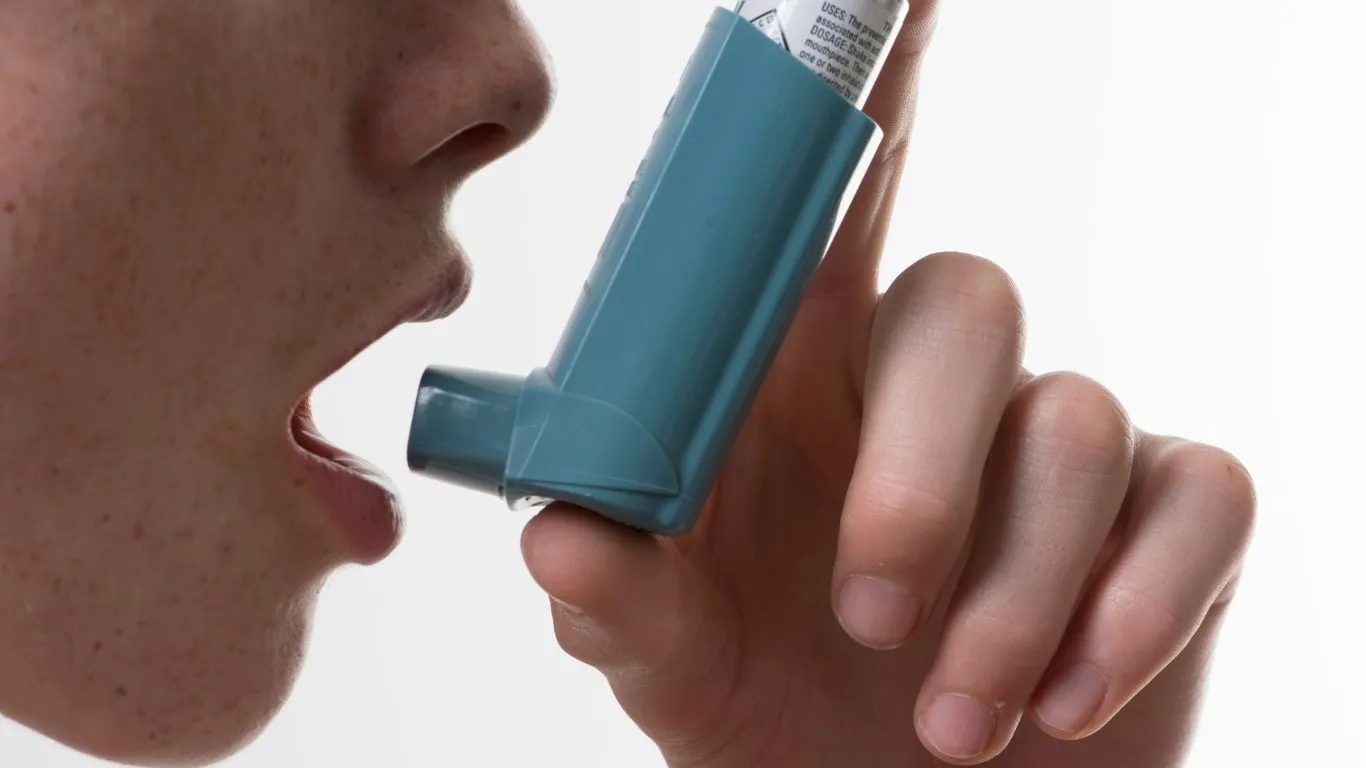7 Powerful Ways Asthma Medications Affect Your Sleep
When it comes to managing asthma, medications are often an essential part of treatment, helping to keep symptoms under control. But have you ever wondered how asthma medications affect your sleep? If you’ve been battling asthma and struggling with your sleep, you’re not alone. This is something I’ve seen firsthand, both in my practice and in personal experiences. Today, I’ll be diving into the effects of asthma medications on sleep, exploring how different types of meds can either help or hinder your ability to get a good night’s rest.
Understanding Asthma Medications
Before we get into how asthma medications affect your sleep, let’s quickly talk about what types of asthma medications are typically prescribed. There are two main categories of asthma medications: rescue medications and long-term control medications. Each type serves a specific purpose and comes with its own set of potential side effects.
Rescue Medications: Quick Relief, But Can They Disrupt Sleep?
Rescue medications, or bronchodilators, are designed to give you quick relief during an asthma flare-up. They work by relaxing the muscles around your airways, allowing them to open up and make breathing easier. The most common type of rescue medication is albuterol, which you may know as a metered-dose inhaler (MDI).
Now, while rescue medications can work wonders for helping you breathe better in the short term, they can sometimes cause side effects that interfere with your sleep. The most common side effects of bronchodilators like albuterol include:
- Increased heart rate: A faster heart rate might make it difficult to fall asleep or stay asleep.
- Jitters or nervousness: Some people experience feelings of restlessness, which can interfere with a restful night’s sleep.
- Shakiness: The feeling of shakiness or trembling in your hands or body is another potential side effect that can be distracting and make it harder to wind down before bed.
In my experience, many patients have reported these side effects, and it’s often more noticeable when they use their rescue inhaler in the evening or right before bed. It’s always a good idea to time your medication use and avoid relying on rescue inhalers right before sleeping. If you’re struggling with these side effects, it might be worth talking to your doctor about alternatives.
Long-Term Control Medications: Helping You Sleep or Keeping You Up?
On the other hand, long-term control medications are intended to be taken on a regular basis to manage asthma over time. These medications don’t provide immediate relief like rescue meds, but they help prevent asthma flare-ups and control inflammation in the airways. Examples of long-term control medications include inhaled corticosteroids (ICS), leukotriene modifiers, and long-acting beta-agonists (LABAs).
Inhaled Corticosteroids (ICS): A Double-Edged Sword?
Inhaled corticosteroids (ICS) are one of the most commonly prescribed long-term medications for asthma. They reduce inflammation in the airways, helping to prevent asthma attacks. However, they can sometimes affect sleep in a variety of ways.
Some patients report experiencing nightmares or vivid dreams as a side effect of ICS, while others find that their sleep is more disturbed than usual. This is partly because corticosteroids, even when inhaled, can enter the bloodstream and impact hormone levels, potentially affecting your sleep cycle. While these side effects are not universal, they can be bothersome for some individuals.
Leukotriene Modifiers: A Gentler Option?
Leukotriene modifiers, such as montelukast, are another type of long-term control medication. These work by blocking the action of leukotrienes, which are chemicals in the body that cause inflammation in the airways. Leukotriene modifiers tend to have fewer sleep-related side effects compared to ICS, but that doesn’t mean they’re completely without risk.
Some people taking montelukast have reported insomnia or feeling unusually tired during the day. However, these side effects are less common than with other medications, and many people tolerate them well. Again, it’s essential to pay attention to how your body responds and talk to your doctor if you notice any negative effects on your sleep.
The Timing of Asthma Medications
One of the key factors that can influence how asthma medications affect your sleep is the timing of when you take them. For example, taking a rescue inhaler too close to bedtime might make it harder to fall asleep, as the medication’s stimulating effects kick in. On the other hand, long-term medications might be more effective when taken consistently at the same time every day—just not too late in the evening.
In my practice, I’ve advised many of my patients to adjust the timing of their medications. For instance, long-acting bronchodilators or inhaled corticosteroids are often best taken in the morning or early afternoon to avoid interfering with sleep. It’s important to work with your healthcare provider to find a schedule that works best for your asthma and sleep habits.
Sleep Strategies for Asthma Sufferers
If asthma medications are affecting your sleep, there are a few strategies that might help you get the rest you need while managing your asthma effectively:
- Establish a bedtime routine: Create a relaxing pre-bedtime routine that doesn’t involve using your rescue inhaler right before sleep.
- Avoid caffeine: Caffeine can interfere with your sleep, so try to avoid it in the evening hours.
- Use a humidifier: Dry air can worsen asthma symptoms, making it harder to sleep. A humidifier can help keep your airways moist.
- Sleep position: Sleeping on your side or propped up with pillows can help reduce nighttime asthma symptoms.

Ultimately, if you’re finding that your asthma medications are negatively impacting your sleep, it’s important to talk to your doctor. There may be alternative treatments or adjustments you can make to minimize the impact on your sleep while still managing your asthma symptoms effectively. Remember, managing asthma is a delicate balance, and with the right guidance, you can find solutions that work for both your health and your sleep.
Can You Manage Your Asthma and Sleep at the Same Time?
Managing asthma and getting enough sleep can sometimes feel like walking a tightrope. You need to control your asthma symptoms effectively, but medications can also play a role in disrupting your rest. In Part 1, we talked about how asthma medications can affect sleep, and in this section, we’ll explore some strategies for managing both asthma and sleep without compromising your health or rest. I’ve seen so many patients struggle with this balance, and in many cases, it’s about finding the right approach that works for you. Here are a few tips that might help!
Customizing Your Medication Plan
One of the most important things you can do is work with your healthcare provider to customize a medication plan that takes both your asthma and sleep needs into account. For some individuals, tweaking medication schedules or switching to a different type of medication can make a big difference in how they sleep.
When I’ve worked with patients, we’ve often found that adjusting the timing of medications can be the key to improving sleep quality. For instance, instead of using a rescue inhaler right before bed, it might be better to use it during the day when your body is more active and less likely to be affected by any side effects.
For those who need long-term asthma control, it’s important to remember that consistency is key. Taking your controller medications at the same time each day can help keep asthma symptoms at bay while preventing disruptions to your sleep. If you’re feeling unsure about your current treatment plan, don’t hesitate to reach out to your doctor for a consultation to fine-tune your strategy.
The Role of Asthma Triggers and Their Impact on Sleep
Aside from medications, other factors can affect your asthma symptoms and ultimately disrupt your sleep. Asthma triggers like allergens, irritants, or even stress can worsen asthma symptoms during the night, making it harder to sleep soundly. I can tell you from personal experience that it’s not just about what medications you’re on but also how well you’re managing these triggers. Here are some common triggers to keep in mind:
- Allergens: Dust mites, pet dander, pollen, and mold are common asthma triggers that can make it harder to breathe while you sleep. Make sure your sleeping environment is as allergen-free as possible.
- Cigarette smoke: Even secondhand smoke can irritate the airways, making asthma symptoms worse, especially during the night when your body is in a resting state.
- Cold air: Breathing in cold air can constrict your airways, leading to nighttime asthma attacks.
- Stress and anxiety: Stress can worsen asthma symptoms, and in turn, poor asthma control can lead to increased anxiety. The two go hand-in-hand, making it hard to get peaceful sleep.
In my practice, I’ve found that creating a sleep-friendly environment is just as important as sticking to your medication routine. Make sure your bedroom is clean, free of allergens, and kept at a comfortable temperature. Using a humidifier can help keep your airways moist, especially if you’re prone to nighttime coughing. Sometimes, it’s the small environmental changes that make a huge difference in how well you sleep with asthma.
Managing Asthma and Sleep with Lifestyle Adjustments
Let’s talk about lifestyle adjustments for a moment. I can’t stress enough how much these small but powerful changes can help you manage both asthma and sleep. In my experience, making a few key changes in your daily routine can reduce the likelihood of nighttime asthma flare-ups and make it easier to get a restful night’s sleep.
Here are some of the most effective lifestyle changes to consider:
- Exercise Regularly (But Carefully): While it may seem counterintuitive, regular exercise can help strengthen your lungs and improve your asthma control. However, it’s important to do this in a way that doesn’t trigger symptoms. A gentle walk or a low-intensity workout can be perfect for managing asthma. Be mindful of your breathing and make sure to avoid exercising in cold or polluted environments.
- Avoid Eating Right Before Bed: For those of us with asthma, eating a large meal too close to bedtime can trigger reflux and exacerbate nighttime asthma symptoms. Try to finish eating at least two to three hours before you sleep.
- Stay Hydrated: Drinking plenty of water during the day helps keep your airways moist and may help with asthma control at night.

When to Seek Help for Asthma and Sleep Issues
Even with all the tips and strategies we’ve covered so far, sometimes you might find that your asthma and sleep issues aren’t improving. If you’re consistently having trouble managing both, it might be time to seek additional help. In my experience, some patients may need a combination of treatments or more specialized care to truly get their asthma under control while also improving sleep quality.
Some signs it’s time to talk to your doctor include:
- Frequent nighttime awakenings: If you find yourself waking up multiple times during the night due to asthma symptoms, this is a clear sign that your asthma may not be well controlled.
- Persistent symptoms despite medication: If your asthma symptoms are still bothersome even with your prescribed medications, it could mean you need an adjustment to your treatment plan.
- Severe side effects from medications: If the side effects of your asthma medications are significantly affecting your sleep, your doctor may suggest alternative medications or dosing strategies.
As frustrating as it can be, remember that you don’t have to go through this alone. There’s always room for improvement when it comes to managing asthma and sleep, and your doctor can work with you to develop a personalized approach to managing both. Whether it’s a change in medication, lifestyle, or environmental factors, there are solutions that can help you sleep better while keeping your asthma under control.

Getting the right balance between asthma management and quality sleep is crucial to your overall health. You deserve to rest well, and with the right tools and strategies, you can improve both your asthma symptoms and your sleep. Don’t hesitate to reach out for support—whether that’s from a healthcare provider, a support group, or resources available to help asthma sufferers like yourself.
Case Studies & Real-Life Examples
Nothing beats real-life stories when it comes to understanding how asthma medications affect sleep. Over the years, I’ve had the privilege of working with many individuals who’ve faced this very challenge, and their experiences have been truly enlightening. I’ve learned that each person’s asthma journey is unique, and their strategies for managing sleep alongside their medication needs are just as individualized. Here are a few examples that I think might resonate with you.
Case 1: Sarah’s Story
Sarah, a 38-year-old woman, came to me frustrated after months of struggling to get a good night’s sleep. Despite being on a well-controlled asthma medication regimen, she found herself waking up multiple times every night with coughing fits or shortness of breath. After discussing her medications, we realized her use of a bronchodilator at night was causing more harm than good. We switched her to a long-acting inhaler and adjusted the timing of her short-acting medications, which led to a noticeable improvement in her sleep. She now enjoys uninterrupted rest and feels more energized throughout the day.
Case 2: Mark’s Experience with Sleep Apnea
Mark had asthma and had also been diagnosed with sleep apnea. Although his asthma medications were managing his asthma fairly well, he was still struggling with exhaustion. After a more thorough review, we discovered that his sleep apnea was contributing to his overall lack of sleep quality. Together with his respiratory therapist, we adjusted his asthma regimen and recommended an overnight CPAP machine to help with the sleep apnea. The change was nothing short of transformative, and Mark finally found himself sleeping soundly at night.
Key Takeaways: What You Need to Remember
By now, I hope it’s clear that managing asthma and sleep simultaneously isn’t a one-size-fits-all situation. If you’re dealing with this struggle, here are the most important points to keep in mind:
- Timing is Everything: When you take your asthma medications can make a big difference in how well you sleep. Working with your doctor to adjust the timing of your medications might be the solution to a more restful night.
- Medication Types Matter: Some asthma medications, particularly those that contain steroids, can interfere with sleep. Ask your healthcare provider about alternatives that might have fewer side effects on your sleep.
- Environmental Control is Crucial: Reducing asthma triggers in your environment can help you manage your symptoms and sleep better. Try to eliminate allergens and irritants from your bedroom, and make sure the air quality is good.
- Consistency is Key: Both in your medication regimen and your sleep schedule. Sticking to a routine will help your body adjust to both your asthma management and your sleep needs.
These are the pillars of better sleep when managing asthma, and they can go a long way in helping you find the balance between controlling your asthma and getting the rest you deserve.
5 FAQs About How Asthma Medications Affect Your Sleep
1. Can asthma medications cause insomnia?
Yes, certain asthma medications, especially those containing steroids or bronchodilators, can cause insomnia or disrupt your sleep patterns. If you’re experiencing sleepless nights, talk to your doctor about alternative treatments or adjustments to your medication timing.
2. Does using an inhaler before bed affect sleep quality?
In some cases, using a rescue inhaler (like albuterol) before bed can cause restlessness or difficulty falling asleep. It’s best to use it earlier in the day unless absolutely necessary, and you might want to try a long-acting inhaler to reduce nighttime symptoms.
3. Are there any sleep aids that are safe to use with asthma medications?
If you’re struggling with sleep, some sleep aids can be used safely with asthma medications, but it’s important to check with your healthcare provider first. Some medications, like antihistamines, might have side effects that could interact with your asthma meds.
4. How can I reduce asthma symptoms at night?
To reduce nighttime asthma symptoms, consider adjusting your medication regimen, using a humidifier, avoiding allergens, and sleeping in a propped-up position. Also, be mindful of any nighttime triggers, like pets or strong scents.
5. Can asthma medications be adjusted to improve sleep?
Absolutely! By working closely with your healthcare provider, you can adjust your asthma medications and their timing to better align with your sleep needs. This can include switching to long-acting medications or altering your inhaler schedule.
Bonus: Additional Resources or DIY Tips
While medications are often the first line of defense in managing asthma and sleep issues, there are plenty of additional strategies you can try to improve your rest. Here are a few DIY tips and resources to consider:
- Invest in an Air Purifier: A high-quality air purifier can help reduce allergens in your bedroom, making it easier to breathe at night. Look for one that can filter out both dust and pet dander.
- Try a Bedtime Routine: Just like we set routines for our kids, having a calming bedtime ritual can help you relax and fall asleep more easily. Consider a warm bath, light stretching, or reading a book before bed.
- Use a Saline Nasal Spray: If you’re experiencing nasal congestion, a saline spray can help clear your airways naturally, making it easier to breathe while you sleep.
Appendix: References, Disclaimer, and Call to Action
References:
– American Academy of Allergy, Asthma, and Immunology
– Asthma and Allergy Foundation of America
Disclaimer: The information in this article is meant for educational purposes only and should not be considered medical advice. Please consult your healthcare provider for personalized guidance regarding asthma management and sleep concerns.
Call to Action: If you’ve found these tips helpful, don’t hesitate to share your story in the comments below or reach out with any questions. Remember, managing asthma and sleep is an ongoing process, and you don’t have to do it alone. Consult your doctor to find the best approach for your individual needs!


Bianca Nala is a compassionate Nurse Practitioner with a strong background in primary and respiratory care. As a health writer for Healthusias.com, she combines her clinical expertise with a talent for clear, relatable storytelling to help readers better understand their health. Bianca focuses on topics like asthma, COPD, chronic cough, and overall lung health, aiming to simplify complex medical topics without losing accuracy. Whether she’s treating patients or writing articles, Bianca is driven by a single goal: making quality healthcare knowledge accessible to everyone.







